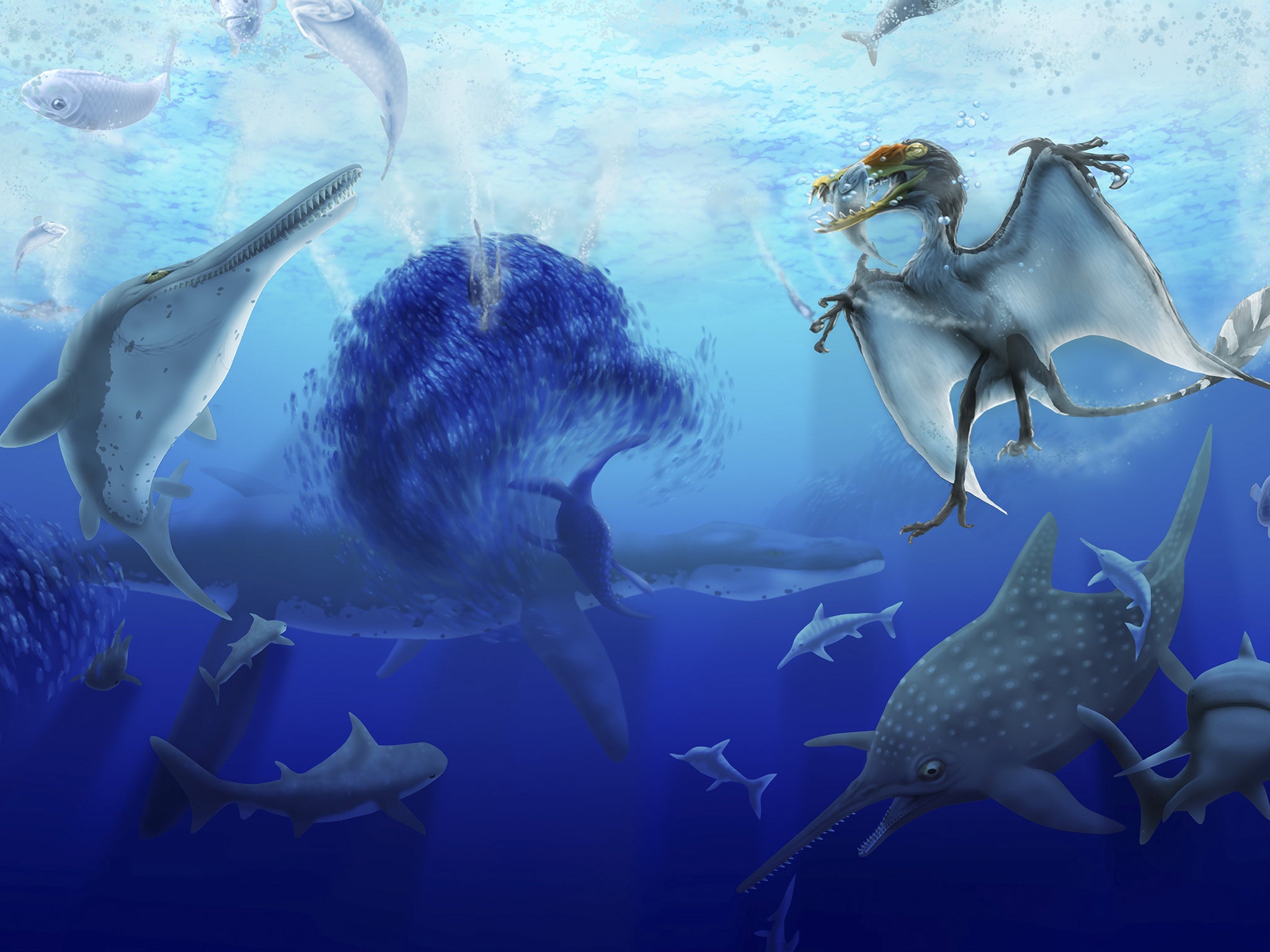Ocean acidification killed off more than 90 per cent of marine life 252 million years ago, scientists believe
Researchers say the oceans suddenly became more acidic, making it impossible for the vast majority of sea creatures to survive

Your support helps us to tell the story
From reproductive rights to climate change to Big Tech, The Independent is on the ground when the story is developing. Whether it's investigating the financials of Elon Musk's pro-Trump PAC or producing our latest documentary, 'The A Word', which shines a light on the American women fighting for reproductive rights, we know how important it is to parse out the facts from the messaging.
At such a critical moment in US history, we need reporters on the ground. Your donation allows us to keep sending journalists to speak to both sides of the story.
The Independent is trusted by Americans across the entire political spectrum. And unlike many other quality news outlets, we choose not to lock Americans out of our reporting and analysis with paywalls. We believe quality journalism should be available to everyone, paid for by those who can afford it.
Your support makes all the difference.They call it the Great Dying because it was the biggest mass extinction in history, and now scientists have discovered the first hard evidence that ocean acidification was the coup de grace that killed off more than 90 per cent of marine life 252 million years ago.
In a disturbing parallel to what is happening in the sea today, researchers have found chemical signatures in ancient rock formations showing that the oceans at that time suddenly became more acidic, making it impossible for the vast majority of sea creatures to survive.
Scientists believe that the dramatic acidification of the oceans at the end of the Permian period was caused by the continual eruption of super-volcanoes which generated the release of massive volumes of carbon dioxide at a rate comparable to the levels of CO2 that humans are pumping into the atmosphere at the present time.
“The important take-home message of this is that the rate of increase of CO2 during the Permian mass extinction is about the same rate as the one to which we are exposing the ocean to today,” said Professor Rachel Wood of the University of Edinburgh.
The Great Dying marked the end of the Permian and beginning of the Triassic period, which is why it is also known at the P-T extinction. It was the biggest of the five mass extinctions on Earth, killing off 51 per cent of all marine families, 82 per cent of all genera and between 93 and 97 per cent of all species.
The scientists said the P-T extinction was divided into an early die-off, possibly caused by oxygen starvation, and a second, later extinction caused by a dramatic increase in ocean acidity resulting from carbon dioxide in the atmosphere forming carbonic acid when it dissolves in seawater.
“The oceans at that time were definitely starved of oxygen, and we know that for sure. It was complicated because there were several things going on then and they were taking place at different times,” Professor Wood said.
“We don’t exactly know what the relation was between the eruption of the Siberian Traps, the production of CO2, global warming and the oceans being starved of oxygen – but we believe there was a relationship,” she said.
A study of ancient rocks from the deserts of the United Arab Emirates, which were formed on the ocean floor 250 million years ago, have revealed that the proportion of boron isotopes within the rock changed significantly, indicating a rapid shift in the pH or acidity of the surrounding seawater.
This the first real evidence that ocean acidification happened on a dramatic scale at the end of the Permian period, suggesting that it must have played a decisive and possibly final role in killing off the species that were still managing to hang on through all the other environmental assaults they went through during that time, the scientists said.
“Scientists have long suspected that an ocean acidification event occurred during the greatest mass extinction of all time, but direct evidence had been lacking until now,” said Matthew Clarkson of Edinburgh University, the first author of the study published in the journal Science.
“This is a worrying finding, considering that we can already see an increase in ocean acidity today that is the result of human carbon emissions.
Life on earth: Mass extinctions
Life on Earth began about 3.8 billion years ago in the form of microbes that left few traces. As animals and plants became bigger, they left fossils behind – and the evidence of five previous mass extinctions:
Ordovician-Silurian (443m years ago): most of life lived in the seas. About 85 per cent of marine species were killed.
Late Devonian (359m years ago): about three-quarters of species became extinct over several million years. Much of the sea became starved of oxygen, possibly due to asteroid impacts.
Permian (252m years ago): nicknamed the Great Dying because it was the biggest mass extinction in history, killing off about 96 per cent of marine species. Volcanoes were thought to be involved.
Triassic-Jurassic (200m years ago): over several million years about half of all species at the time disappeared. But strangely plants were not badly affected.
Cretaceous-Tertiary (65m years ago): famous for being the end of the dinosaurs. An asteroid impact was almost certainly involved, preceded by volcanic eruptions.
Join our commenting forum
Join thought-provoking conversations, follow other Independent readers and see their replies
Comments